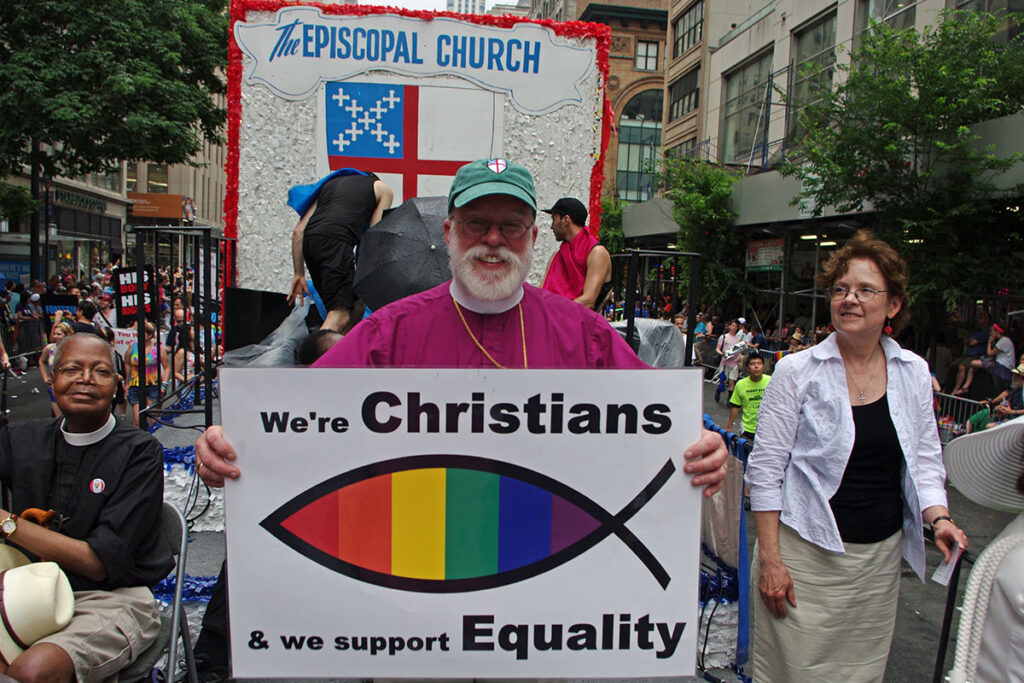Austin, Texas – A committee in the Episcopal Church has officially begun hearing arguments from LGBT and feminist activists to remove masculine pronouns for God in their Book of Common Prayer. The legislative committee of the Episcopal Church was tasked with overseeing the proposed revisions, with special instructions to do what is possible to come to an amenable agreement and necessary compromises on the subject of God’s gender. The process began with the successful passing of Resolution A169, which called for the liturgical guide to be expunged of explicitly male language to refer to either God or human beings and also to add environmental and “creation care” language to the church’s liturgy. The meeting of the Committee to Receive the Report of Resolution A169 began on July 4 and is continuing.
Resolution A169 reads:
Resolved, That the 78th General Convention direct the Standing Commission on Liturgy and Music (SCLM) to prepare a plan for the comprehensive revision of the current Book of Common Prayer and present that plan to the 79th General Convention; and be it further
Resolved, That such a plan for revision utilize the riches of our Church’s liturgical, cultural, racial, generational, linguistic, gender and ethnic diversity in order to share common worship; and be it further
Resolved, That the plan for revision take into consideration the use of current technologies which provide access to a broad range of liturgical resources; and be it further
Resolved, That the General Convention request the Joint Standing Committee on Program, Budget and Finance to consider a budget allocation of $30,000 for the implementation of this resolution.
The resolution was passed in 2015 during the annual convention in Salt Lake City and its wording authorizes the committee to replace or revise the current Episcopal Book of Common Prayer, which was published in 1979. There were also two additional resolutions to be dealt with, A068 and A069. Resolution A068 recommends completely dismantling the old 1979 Prayer Book and start over (to be completed by 2030), and Resolution A069 recommends just revising the Prayer Book to make it more palatable to 21st Century sensitivities.
So far, the Committee to Receive the Report Resolution A169 has formed a sub-committee of six members to help craft a way through the various bureaucratic hurdles and various resolutions. The committee is also considering the implications of another resolution, entitled Resolution D036. It reads:
The Book of Common Prayer is in need of a breadth of diverse language reflecting the diversity of human identities and expressions of those identities and to demonstrate in the language and liturgies of the church that all persons are reflected in the divine image. The biblical text provides a wealth of imagery describing the divine that has yet to be plumbed. The Church has neglected feminine imagery in particular, and has not as yet begun to explore language that transcends binary understandings of the human person. The need is urgent and pastoral and ultimately evangelical.
According to DO36, the Episcopal Church has a history of de-masculizing its worship and liturgical material, beginning in 1928 and carrying on through 1994, in which a committee report encouraged “more expansive liturgical language” in order to appreciate “the deeper mysteries of God.”
The committee received testimony from two Episcopal clergy members who suffer from the sin of gender confusion, who claimed that gender-specific language in reference to God was debilitating and alienating. Rev. Ian Stanford of the Diocese of Oregon and the Rev. Cameron Partridge of the Diocese of California (their real and given names are unknown), described how use of gender-specific language in the prayer book is keeping them from being effective to the disaffected. Stanford said that if (s)he can get young people to visit an Episcopal Church that they will be off-put by the use of male pronouns.
Another gender confused clergy member, Rowan Pantalena – a postulant from the Diocese of Connecticut – told the committee, “as a nonbinary trans person, I am not your brother or your sister. I am your sibling.”
Some clergy members opposed the revisions, but not based upon theology. Ruth Myers and Timothy Nunez both argued that the expense of revising the prayer books (up to 9 million dollars) was too high, or that technology would render the publication of paper books unnecessary by 2030.










